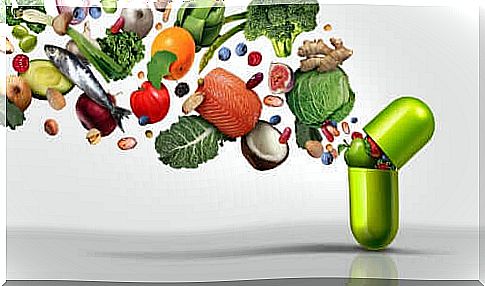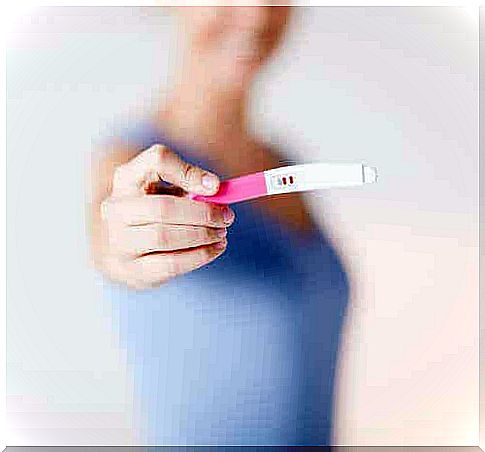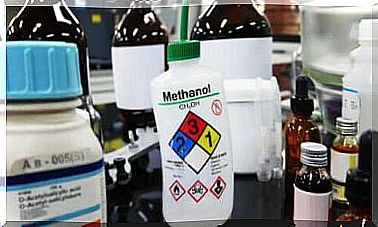Supplements For Pregnancy And Breastfeeding

Dietary supplements for pregnancy and breastfeeding help maintain an adequate state of health for both mother and child. This is because an optimal diet for the mother is crucial for the proper development of the fetus.
Many problems with adequate nutrition can be prevented before conception, during pregnancy and breastfeeding. It is common for a specialist to recommend supplements today. These are specially designed for each period: before conception, during pregnancy and the breastfeeding period.
Dietary supplements are important since before conception
Maternal nutrition in the period before conception is a crucial factor in achieving a healthy developmental process. This is because it significantly affects both fertility and the first phase of pregnancy. In addition, the growth of the fetus is closely linked to the mother’s nutritional status.
Therefore, consult a doctor who can evaluate your health status and recommend a suitable dietary supplement if you are thinking of becoming pregnant. This way you can take the necessary steps.
Consumption of long-chain omega-3 fatty acids, mainly eicosapentaenoic acid (EPA) and docosahexaenoic acid (DHA) contributes to good overall health. They support the proper functioning of the heart, lungs, immune system and endocrine system, as stated in a publication in the annual review of food science and technology.

Dietary supplements during pregnancy
Some studies reveal the importance of supplements during pregnancy. These include nutrients such as folic acid, vitamin B12, iron, iodine and other micronutrients.
Folic acid (vitamin B9) and vitamin B12
These are important for proper cell development. Folic acid begins to work immediately, so you may want to take it if you are planning to have children.
Research shows that the intake of this micronutrient reduces the risk of problems in the development of the baby’s cognitive system, such as neural tube defects.
Pregnancy Supplements: Iodine
The requirements for this chemical element increase during the nine months of pregnancy. It is linked to the proper growth and intellectual development of a fetus. Women need to maintain adequate levels of this mineral because a deficiency can lead to congenital hyperthyroidism.
Pregnancy Supplements: Pregnancy
The need for iron increases significantly during pregnancy, so take supplements regularly. It covers both the needs of the mother and the supply of the baby. Iron is an important mineral as it interferes with the transport of oxygen to the cells.
Pregnancy Supplements: Omega-3 Fatty Acids
These nutrients are important for the body. DHA contributes to the brain, visual and eye development of a fetus. There is also evidence that these lipids improve the cardiovascular health of a mother and her children.
Pregnancy Supplements: Vitamin D
This vitamin is important because it contributes to proper bone growth and general development in children. Women need to maintain adequate levels of vitamin D during pregnancy to be able to absorb calcium and promote proper bone development.
The components of supplements during breastfeeding
The nutritional needs are different at this stage and in fact more demanding than during pregnancy. The baby gets most of the important nutrients from breast milk. For this reason, you need to provide supplements that can satisfy these needs. The most common for this purpose are:
Folic acid (vitamin B9)
Maternal vitamin B9 levels can fall during breastfeeding because some of it goes into breast milk. Folic acid helps reduce fatigue and exhaustion.
Vitamins A and D.
Breast milk is the best source of vitamin A and vitamin D. The other contributes to the absorption and use of calcium. Ensuring the supply through breast milk is a function of the mother’s vitamin D level.

Iodine is one of the important supplements
Breastfeeding women need almost twice as much iodine to ensure the necessary supply for the baby.
Calcium and iron
Maternal need for calcium and iron during breastfeeding increases significantly. Iron is essential for the formation of red blood cells and hemoglobin.
Omega-3 fatty acids
These are necessary nutrients for the organism. In fact, docosahexaenoic acid (DHA) contributes greatly to the normal development of the infant’s brain and eyes. It also prevents inflammatory conditions.
Pregnancy supplements can be your ally
Supplements for pregnancy and breastfeeding are specially formulated to meet the needs at all stages of the process. Not only should you take care of your health when you already know you are pregnant, but also prepare for it in advance. Every situation is different, and it is sometimes necessary to evaluate the context to supplement correctly.









